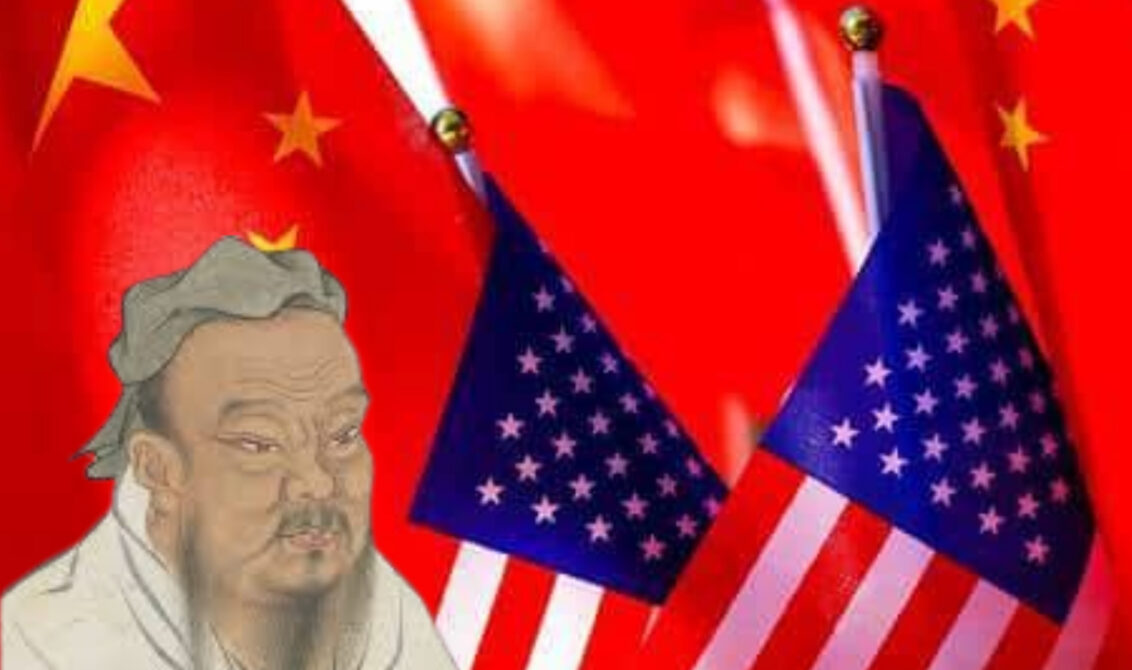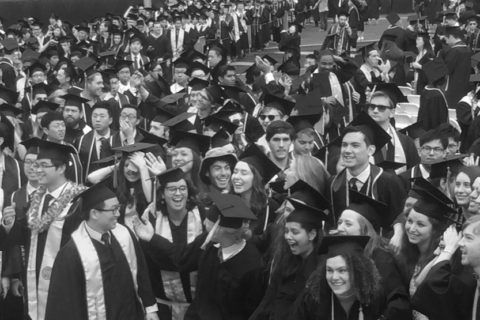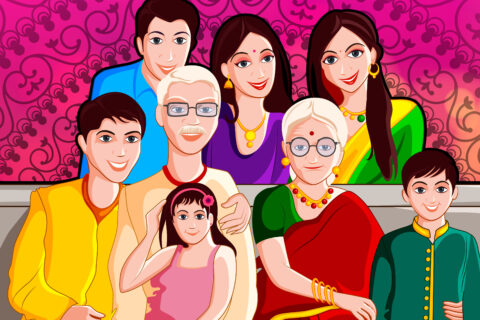
As a seventh-grader in India, I chanted anti-Mao slogans when China invaded India. It was India’s first war after independence and we suffered a humiliating defeat. I have resented China since.
After arriving in the US to attend college, I founded a company in Silicon Valley, which made products to complement Cisco’s routers. Twenty years ago, when Cisco’s router code, with its original mistakes, was found embedded in Chinese routers made by Huawei, I retaliated by refusing to buy consumer goods made in China.
Last year I became a subscriber to Foreign Affairs magazine. Its high-level perspective on global geopolitics fascinated me. Three months ago I came across an article written by Prime Minister Lee Hsien Loong of Singapore. He made a case for why countries should not have to choose between the US and China, claiming “Chinese economy has tremendous dynamism .. (in contrast to the Soviet Union)… (and now has the stature to).. not only respect global rules but uphold and update international order.”
Lee Hsien Loong’s argument got me thinking.
I started exploring what China is about and what if anything America might learn from China while preserving its democratic and capitalist values. I also reached out to Chinese American friends to gain insight into their understanding.
How does America solve the serious problem of job-loss of the middle-class? China has. The pandemic has only made it worse.
China has handled the pandemic better than the US, even though we have superior research and healthcare. China had its first COVID-19 case in Wuhan in early December 2019. The US had its first known case in Seattle, 60 days later.
The Chinese government moved quickly to contain the virus. In China, a country of 1.4 billion, 5000 people have died from COVID-19. Here in the United States, a country of 330 million, more than 170,000 have died — 150 times higher on a per capita basis.
Just 45 days after the first known case, a Chinese researcher revealed the first draft of the RNA of coronavirus. Knowing the structure of the virus has helped international laboratories to accelerate the development of tests, treatments, and vaccines — thanks to China.
Despite the pandemic, China’s GDP grew 2.5% in the second quarter of 2020, while the US GDP shrunk by 9.5%. The Chinese economy is already on the road to recovery.
Since 1979, China’s annual average GDP growth has been 9.5%. At first, the world did not trust their numbers. Then we saw how China’s economic policies lifted 800 million people out of poverty, built a world-class infrastructure, and created a 15,000-mile of the high-speed train network while holding more than $1trillion of the US government’s debt.
Chinese progress is real and impressive, and their economic statistics have been accurate.
Most surprising is the agility with which the Chinese one-party system has made complex maneuvers, which have worked out remarkably well. China has made the transition from Maoism to opening up to foreign investments and allowing private enterprises to flourish while building public enterprises and allowing them to privatize.
I learned and now believe, these sweeping reforms could not have happened without a heated dialog and dissenting voices within the party. After all, 90 million members of the Communist Party of China (CPC) cannot be homogenous thinkers. Their execution could not be perfect either. Did they correct their missteps, rather quickly?
CPC publicly refrains from admitting mistakes or airing their dirty laundry. It may not be easy to figure out how the party works, but they have made phenomenal progress.
Political freedom remains an issue in China, yet a US survey reveals 95.5% of people satisfied with Beijing, compared to 38% in the US.
Will Chinese people remain satisfied as long as economic prosperity continues? Maybe.
Internationally, the lack of trust in China is increasing. Internally, a Pew Research survey shows Chinese people are dissatisfied with income inequality, corruption, and inflation. Their teens also want to save the environment.
Is China trying to reform itself on these fronts? Perhaps.
Whereas, social reforms from within, open dialog, and pursuit beyond economic gains are America’s strengths. American generosity was reflected in the Marshall Plan and handing free internet to launch the world at the recent turn of the century.
The US has worked hard since WW2 to earn its stripes of being a formidable economic power by market liberalization. It is also the best place to foster innovation.
However, the American middle class is being left behind. If the US government could partner with big-techs — private-public collaboration — the middle class can also be uplifted. While the big techs hire, the government can help up-skill education, for employment, like in China. If Elon Musk and the likes can be supported to build Hyperloop — our version of the high-speed rail — we can overcome affordable housing problem, by dramatically shortening workers’ commute.
Despite different political ideologies, grounded by our values America can be unafraid of adapting and learning from others including China.








hemant lall
Insightful article. Interestingly, I used to live across the street from Chinese consulate in New Delhi. Before China invaded India, we used to chant “Hindu-Chini bhai bhai” (India and China are brothers). After the invasion, the chant became “Hindu-Chini bye-bye”!
I agree China has made remarkable progress. They have economic freedom now but still not political freedom. I do believe strongly American democracy is the best form of government. But after reading your article, it makes you wonder.
Deeprasshree
Wonderful analysis of how US can learn from China a thing or two to uplift its middleclass, and improve preparedness for tackling pandemics.
Vijay Gupta
America loves to teach the rest of the world how to live and how to govern itself. But it is very hard for America to learn from other countries and other cultures. One big reason is the so-called notion of American exceptionalism.
From Wikipedia: “American exceptionalism is the theory that the history of the United States is inherently different from that of other nations. In this view, American exceptionalism stems from its emergence from the American Revolution, thereby becoming…”the first new nation” and developing a uniquely American ideology, “Americanism”, based on liberty, equality before the law, individual responsibility, republicanism, representative democracy, and laissez-faire economics. This ideology itself is often referred to as “American exceptionalism.” Second is the idea that America has a unique mission to transform the world….(As Lincoln said) Americans have a duty to ensure, “government of the people, by the people, for the people, shall not perish from the earth.” Third is the sense that America’s history and its mission give it a superiority over other nations.”
Gaurang Desai
There are three aspects that you have not explored.
1. China being secretive, we don’t know the real number(s) of infection and death. I believe, the numbers are way too high than 5000 reported
2. China had held back lot of information that either hurt and / or delayed the response, world around
3. Unfortunately, in US, there is lot more politics being played with this pandemic and there is definitely a great amount of over / false reporting of deaths
As far as I am aware, in most other countries, besides some noise, opposition has refrained from playing politics.
Raj Singh
There are several factors for the unprecedented progress china has made, namely, a) stated goal to be number one, b) a plan to achieve that and c) a high speed execution of the plan – just like founders of a high-tech startup – with R&D centers scattered around global tech centers including a 1000-talent scheme to attract global talent.
USA and Japan have helped them achieve that. After Nixon’s visit, successive US administrations have pursued a path of helping china in both economic development and military. First one to help create a middle class for buying American goods and second to help offset soviet threat. Japan has taught them manufacturing. Their investment and knowledge transfer became the seed for today’s factory of the world.
USA has been mired in the middle east. Few Lobbies drive our foreign policies. Israel drives our policies in middle east and China is using this weakness inside Capital Hill to drive their economic agenda.
Our presidents have to wake up and devise plans for safeguarding future of the next generation. Certain things go by party lines, e.g., immigration, gay rights, appointment of justices, etc. But foreign policies should be followed across party lines, no matter who is the President. Else our adversaries will continue to take advantage of us and weaken the country.
If I were to run the country for a day, I will make friends with Russia; peace with Iran, invest in Mexico, Central and South America for low cost manufacturing; a $100B fund to invest in semiconductor manufacturing on US soil and in India; boost production of solar energy at points of usage so as to reduce reliance on middle east oil; get more involved in climate change; modernize Navy for a stronger footprint in far east waters where China has built submarine hideouts in tiny islands; reform justice systems to heavily shut down jails and use modern technologies to track prisoners and use the funds thus saved on vocational schools; fund schools independent of their zip codes; create and fund a private-public-partnership to being manufacturing back to US soil; let Japan build its own military including armaments as an ally; forge stronger ties with India for both technology and defense; seriously revisit WTO membership in favor of bi- or multi-lateral regional trade agreements.
I will involve the Vice President help manage the domestic agenda. Delegation of duties opens up bottlenecks.
Relations with China will remain troublesome no matter who runs that country. Their goals are published with clarity. In 2008, a PLA general shows up at a private media conference in Beijing on educational games where I happened to be a mentor and says in his closing remarks that Chinese entrepreneurs should partner with silicon valley firms for technology and with Hollywood for animation to create educational games to train the solders for combat readiness.
USA uses the ill-conceived notion of embargo to punish its so-called enemies. But that only comes back to bite us. It hurts citizens of a country and not its regime. Iran is a case in example.
Lt Col Sushil Kumar Paul
I wonder how much of the stated facts about China is to be trusted. They have built their image and also economic strength based on lies, false propaganda, steeling technical know how and the blood of many common Chinese folks. Even their data on Corona virus casualties are not to be trusted. They ( the Chinese leadership) are a friend of no one . They have bee acting like the old hated and feared ‘money lender’ to small nations starving for monetary help mostly because of their own corrupt leadership. They have trapped in un-payable loans and attached part of their land pretending to develop it thereby increasing the burden of loan to them and spreading their own military influence. Their method of becoming materially affluent is fraught with inhuman ways No wonder they are getting along so well with the Talibans.
Atul Dua
People who write these generalisation would be on the roads if even an iota of their freedoms were under threat never mind living in a surveillance state. These are two different systems which are not even parallel. Of course the world should not have to choose but it has to. Not a squeak from the author aboutTibet or Xinjiang or having your windows welded by the state during lockdown by the Chinese platitudes. Take your call on which one you would like to choose . Mouthing utopian platitudes has got us nowhere
Manohar Mishra
This is not an analysis. This just a bunch of few observations with oversimplified comments over those observations without bothering about the real “deep dive”. Again allmost all of these observations are known to almost everyone.